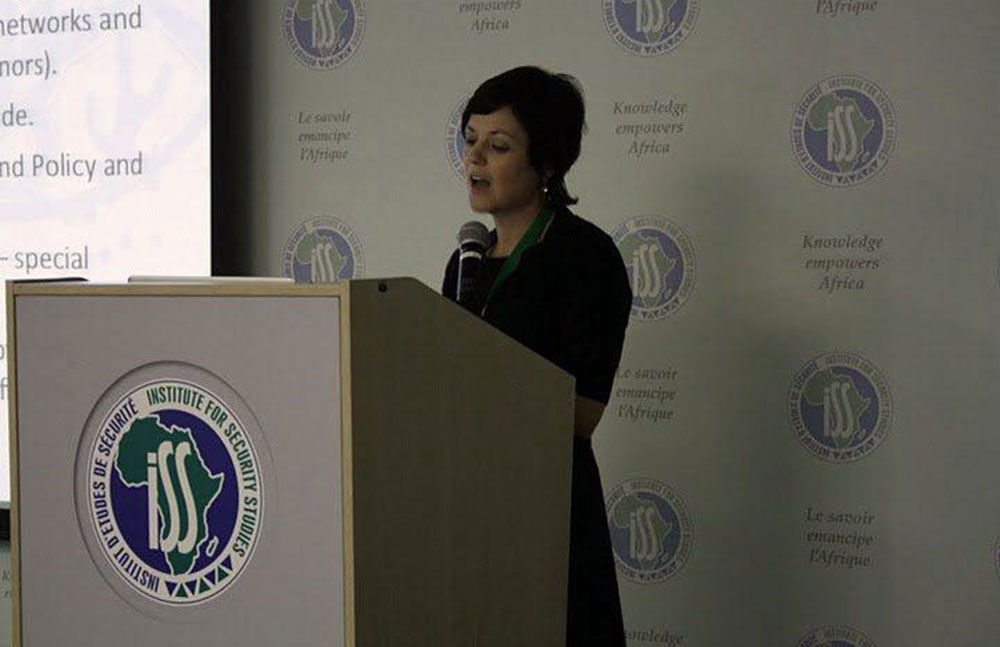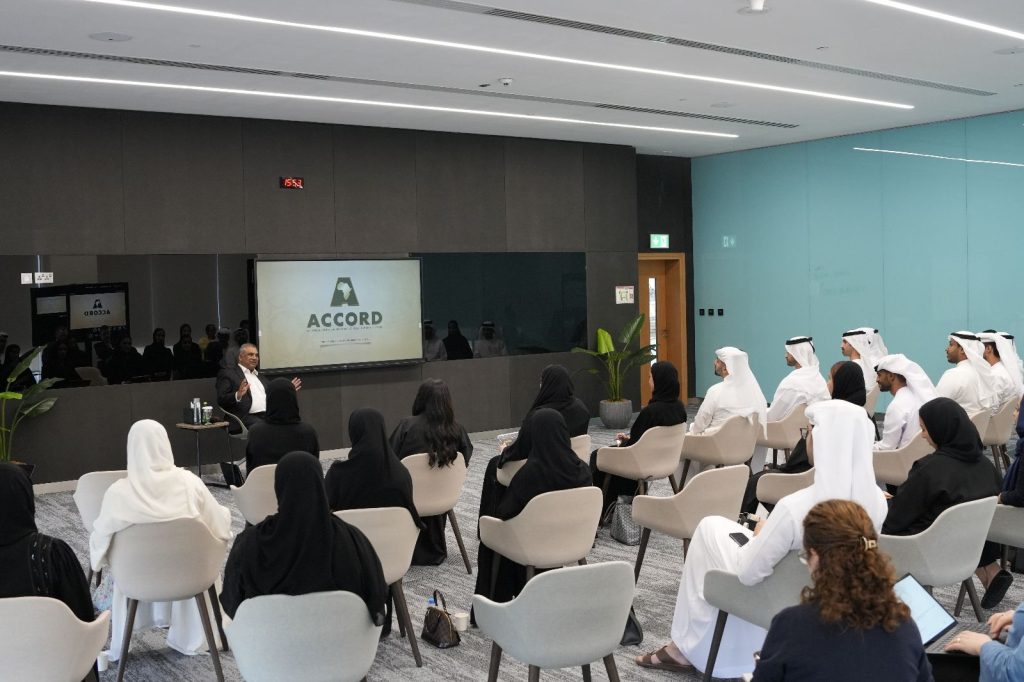Senior ACCORD Researcher, Salome Bronkhorst, was invited by OneWorld and Adelphi, supported by the German Federal Foreign Office, to present at a regional dialogue in Pretoria which focused on the interrelationship between climate change, conflict and cooperation in Southern Africa. The dialogue, held on 23 September, brought together decision makers and experts from Southern Africa as well as from Europe to address key questions related to climate change and security. In particular, the dialogue focused on identifying potential pathways for regional cooperation and benefit sharing, related to climate change and security.
In her presentation, Ms Bronkhorst reflected on key considerations for conflict-sensitive climate change adaptation and cooperation. In particular, she focused on the importance of multi-disciplinary, scaled approaches in research, policy and practice in order to ensure that climate change adaptation is conflict-sensitive. Climate-related conflicts are likely to be visible on a local level first, and relate closely to high natural resource dependence and livelihoods affected by changes in the climate and resources. Conflicts can also arise as a result of maladaptation – where adaptation efforts lead to conflicts. Moreover, the various transboundary issues that may arise as a result of climate change and which may lead to conflicts, such as mobility, migration and sharing of water resources will need to be addressed. For these reasons Ms Bronkhorst argued that it will be critical for policy making, practice and research on conflict-sensitive adaptation to sit within the fields of development, environment and peacebuilding, all of which depend on political institutions and good governance. Cooperation will also be needed at all levels – within and between policy makers (from global to local levels), academics, and practitioners, if the complexity of climate change, adaptation and conflicts are to be adequately addressed. Ms Bronkhorst concluded by discussing and highlighting areas for potential cooperation, including scientific research, knowledge exchange (such as sharing of good practice and knowledge on policy development), data sharing, early warning, broader conflict prevention and technical climate adaptation efforts (such as the building of dams).
Ms Bronkhorst’s participation in the dialogue and presentation drew on the outcomes of an expert seminar convened by ACCORD on 15 & 16 September on the same topic, and research conducted by her and others on the linkages between climate change and conflict. The outcomes from the aforementioned seminar will be disseminated as a Policy & Practice Brief during a number of side events at COP17 (the Conference of the Parties to the United Nations Framework Convention on Climate Change) to be held in Durban this year.







